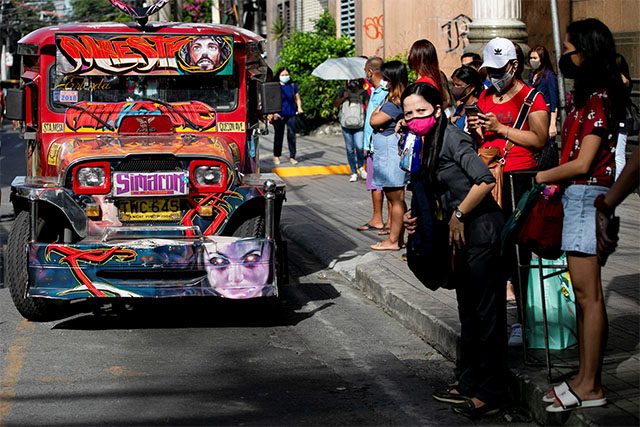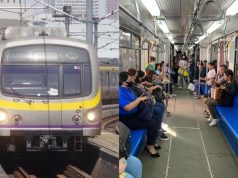
A social media personality shared a video enumerating the consequences of phasing out traditional jeepneys on the economy nearly a year since they were barred to operate.
TikTok creator Gab Campos shared the video titled “Kita first, kapwa second” in two parts on Twitter on March 6. The videos had since circulated across platforms.
The tweet alone was shared more than 4,800 times on the micro-blogging platform.
sampayan talks ep3. kita first, kapwa second (pt1) #NoToJeepneyPhaseout pic.twitter.com/bk4wkQIzOe
— gabo | magparehistro’t bumoto! (@yourlologab) March 6, 2021
In the video, Campos described the Department of Transportation’s Public Utility Vehicle Modernization Program (PUVMP) as “fake,” citing the following reasons:
- Deadline of registration for the new electric jeepney or e-jeep on March 31 amid the ongoing pandemic
- Air-conditioning in e-jeepneys are considered highly risky for viral transmissions for Sars-CoV-2 droplets
- Costs of the modern jeepneys and the low subsidy despite having no income due to the standing suspension of their operations
- Fleet management system with perceived unfair quota and wage among jeepney drivers
These are also the same repercussions transport groups and progressive groups voiced out to the DOTr since the program was launched in 2017.
Campos also pointed out that the criticisms does not suggest they are resisting change.
“Wala namang tutol sa modernisasyon. Go tayo sa solar, go tayo sa electric and everything pero hindi sa ganitong paraan. Modernize with a heart, ika nga,” he said.
“500,000 drayber, 300,000 operator at dalawang milyong pamilya ang apektado nito. Habang nasa kalagitnaan ng isang malaking panda-ballpen (pandemic),” Campos added.
The content creator also sought the help of his followers and asked them to join the online campaign against the looming phase-out of traditional jeepneys.
“Tulungan natin ang ating mga drayber-opereytor laban sa pekeng modernisasyon ng gobyerno! Sign the petition, mga mi!” Campos said.
The online petition further detailed the concerns which were mentioned in the video and added how the government’s transport plan could worsen their situation rather than improve.
“Upang matugunan ang krisis sa trapiko at transportasyon, marapat na batay sa konkretong kundisyon ng publiko ang mga programa at patakaran na itutulak ng administrasyon. Matibay kaming tumitindig kaisa ng mga tsuper at ng malawak na hanay ng masa sa walang humpay na pagbubusina ng panawagan sa kalsada,” the petition read.
“Isulong ang ligtas, episyente, at abot-kayang pampublikong transportasyon! Ilaban ang tunay na programa sa modernisasyon,” he added.
Recap of the govt’s modernization scheme
The PUVMP has met heavy opposition from the general public since it was announced three years ago, thus delaying its full implementation.
It mainly seeks to provide “a restructured, modern, well-managed and environmentally sustainable transport sector where drivers and operators have stable, sufficient and dignified livelihoods while commuters get to their destinations quickly, safely and comfortably.”
In its statement, the Land Transportation Franchising and Regulatory Board explained that tge program involves a comprehensive systemic change in public transport aside from modernizing the vehicles.
“It is a comprehensive system reform that will entirely change the public land transportation industry. It features a regulatory reform and sets new guidelines for the issuance of franchise for road based public transport services,” the agency said.
Fleets of the modern jeepney called the BEEP rides have already started operating in some parts of the country, including Metro Manila, even before the pandemic.
They were among the public utility vehicles allowed to resume operations when the national government eased travel restrictions in the country.
However, the LTFRB took months in reopening some jeepney routes.
Some 52 of them were reopened in October last year while some drivers remain jobless amid the health and economic crisis.









